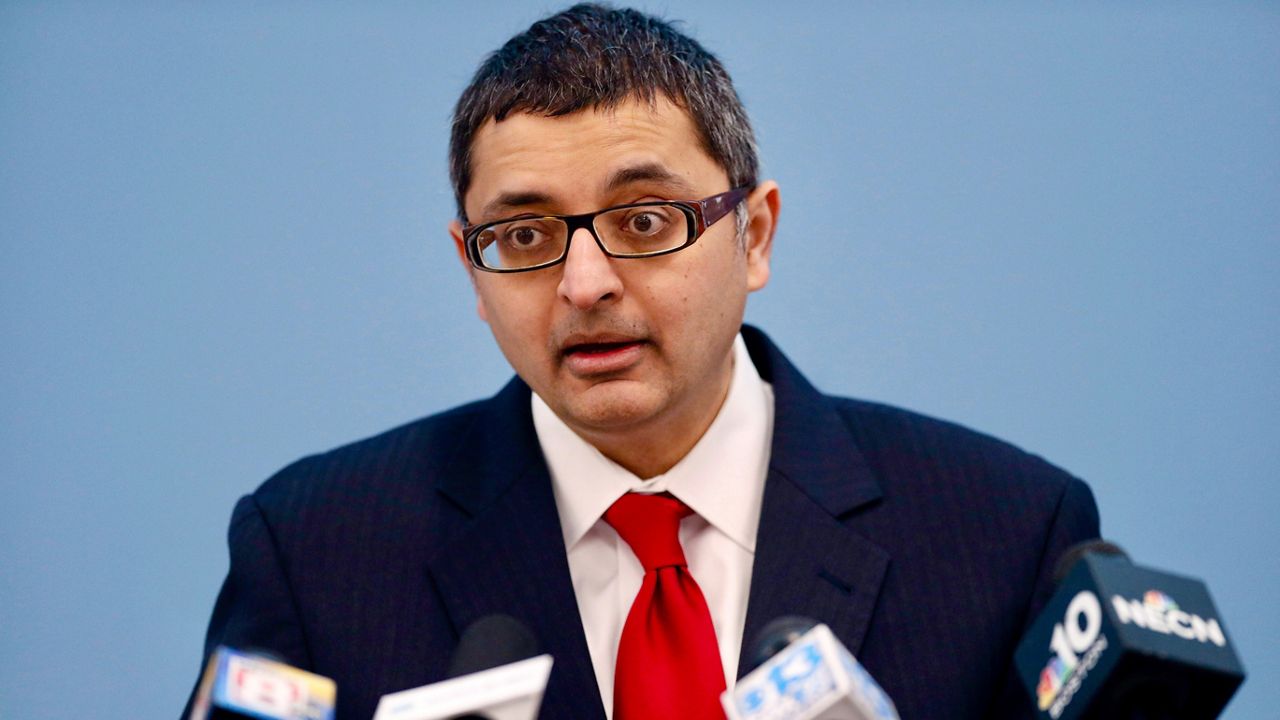The director of the Maine Center for Disease Control and Prevention warns the state and country may not have enough resources to adequately respond to the surges in COVID-19 cases that he expects in the fall.
Dr. Nirav Shah has returned to Maine after leading a summit in Washington, D.C. as president of the Association of State and Territorial Health Officials. He says it’s crucial that Congress approve the additional COVID-response funding sought by the White House so the country can prepare for future COVID outbreaks and flare-ups.
“The Association of State and Territorial Health Officials has urged Congress to approve additional funding, specific to COVID-19, but generally to help support state public health departments. To sustain our response going forward, funding will be needed,” Shah told Spectrum News Maine. “My participation here was informed partly by the experience that we've had in Maine, but also, from what I've heard from state health officials across the country.
"There's going to be waves of COVID that come in the future, we know that's going to happen,” Shah said.
On Thursday, White House COVID-19 coordinator Dr. Ashish Jha expressed similar concerns. Jha said that without additional requested funding, the federal government doesn’t have the resources to adequately respond to any COVID surges after this summer.
“Those purchases need to be made now. They cannot be made in the fall," Jha said. "So, if you're wondering, what is it that really worries me? I think we have the tools for the summer, we will not have the top tools for the fall and winter."
The Biden administration requested an additional $22.5 billion in COVID-response funds in March. However, that request has made little headway, mainly because of Republican opposition.
Jha added that the situation actually keeps him up at night. He said without knowing if they’ll get the money, they are looking at drastically different scenarios for the colder months. Some officials have warned that without starting preparations now, the U.S. could potentially see as many as 100 million COVID-19 infections in the fall and winter.
While there’s been congressional inaction on the administration’s funding request, Maine’s two senators have been working to shore up the state’s COVID-19 resources. Last month, Sens. Angus King (I-Maine) and Susan Collins (R-Maine) announced they secured more than $2 million from the Federal Emergency Management Agency to support efforts at Maine Medical Center to combat COVID-19. They said the funding will be used to provide additional contract tracing, testing and proactive screening services.
Shah said he is optimistic about where the nation could be headed in terms of its long-term response to COVID-19.
“We are looking at how we transition our response to COVID-19. Not from the emergency that it is that has been characterized thus far, but toward a model of sustained management going forward,” Shah said.



